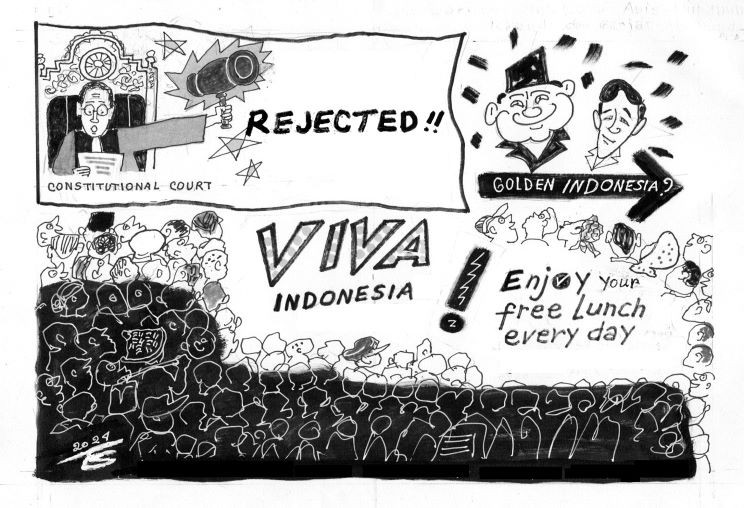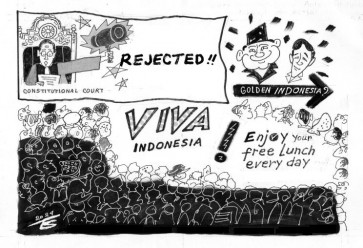Popular Reads
Top Results
Can't find what you're looking for?
View all search resultsPopular Reads
Top Results
Can't find what you're looking for?
View all search resultsThe case for dissenting opinions and the jurisprudence of morality
The Constitutional Court justices should have explored, followed and understood the values of the law and sense of justice that exists in society.
Change text size
Gift Premium Articles
to Anyone

The Constitutional Court rejected on Monday the claims of structured, systematic and massive fraud submitted by the presidential candidate pairs of Anies Baswean-Muhaimin Iskandar and Ganjar Pranowo-Mahfud MD. However, the decision has caused significant debate due to it being the first instance of dissenting opinions by three Constitutional Court justices, Saldi Isra, Arief Hidayat and Enny Nurbaningsih.
In Arief's dissenting opinion, the factual basis highlighted was the government's intervention in the 2024 presidential election. This can be seen from the President's blatant support for specific candidates and the use of the state apparatus for this purpose.
The legal basis he referred to included Article 22E paragraph 1 of the 1945 Constitution, People’s Consultative Assembly (MPR) Decree No. VI/MPR/2001 on the ethics of national life and Law No. 7/2017 on elections. Arief argued that the intervention violated democratic principles and the prevailing law, and emphasized the need for the Constitutional Court to consider substantive aspects of justice in resolving disputed election results.
In Enny's dissenting opinion, the factual basis emphasized was the need for honest and fair elections as part of the spirit of reform, and the importance of clear standards and requirements in their conduct. Her legal basis also referred to, among others, Article 22E paragraph 1 of the Constitution, the Elections Law, MPR Decree No. VI/MPR/2001 and considerations of the Constitutional Court in resolving disputes over election results. Enny highlighted that the administration of elections must meet clear standards and democratic principles, and affirmed the authority of the Constitutional Court in resolving disputes over election results.
In his dissenting opinion, Saldi highlighted the use of social assistance funds to support one candidate pair in the presidential election. Referring to Article 23 paragraph 1 of the Constitution and the legal view that no rule of law is perfect, Saldi concluded that the distribution of social assistance funds to support one candidate in an election can be considered an abuse of power and a violation of the principles of democracy because it creates inequality among contenders.
Of the eight justices who adjudicated the disputes over the Feb. 14 presidential election results, the three dissenters insisted that there was a close link between morals and law, therefore, they deemed, the mobilization of power must be seen as election fraud.

The phenomenon of dissenting opinion reminds us of a classic debate between HLA Hart and Lon Fuller about the status of legal products that are not rooted in moral norms.


















